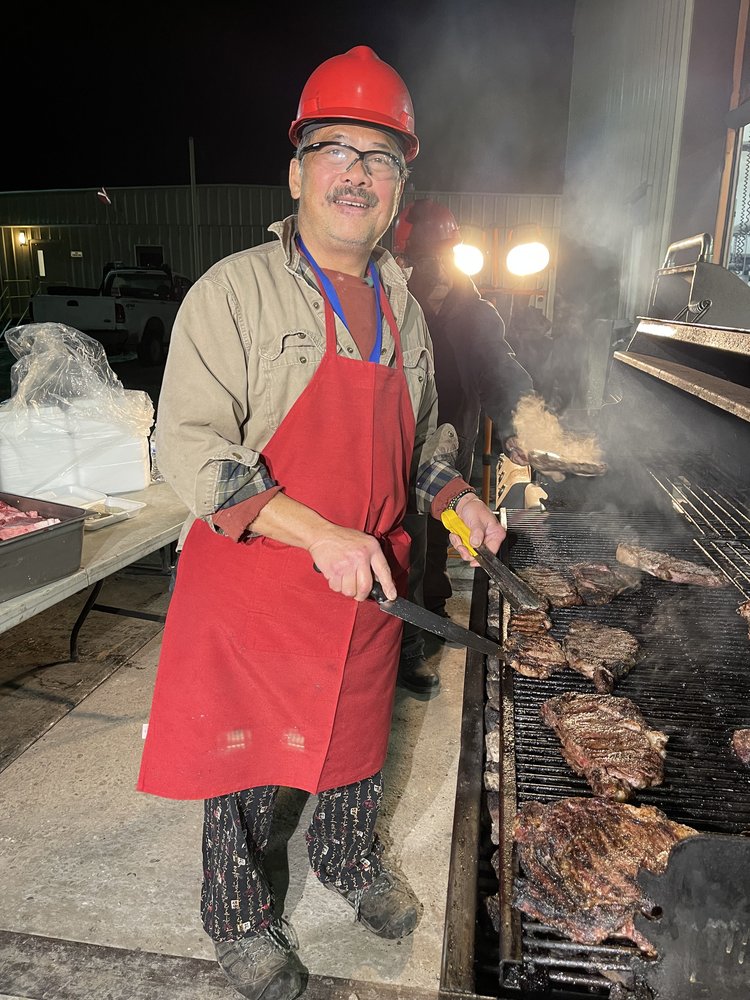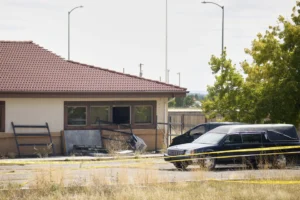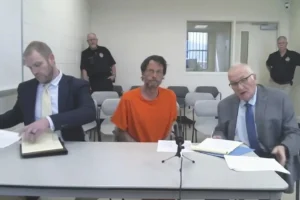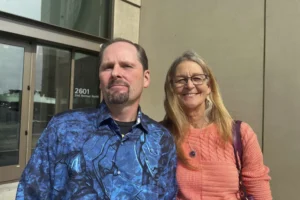Wyoming Lawmakers Advance Bill Prohibiting Release of Mugshots Before Conviction
Mugshots are public records after arrest, even if a person hasn’t been found guilty of a crime
- Published In: Criminal Justice
- Last Updated: Feb 24, 2022
Rock Springs resident Wing Lew was arrested on DUI controlled substance and traffic violation charges in May 2020. Both charges were dropped because he did not test positive for alcohol or other substances. But his mugshot had already been publicly shared by a local news outlet, the Rocket Miner.
Lew, whose businesses include a bar, hotel and food truck, recalled how humiliated he felt and how he wondered what the locals thought of him.

“Being a business person, the local community knows who I am and they read in the paper or social media or wherever that the owner of the food truck and the bar, Sands Hospitality, was arrested for driving while under the influence of a controlled substance, whether it’s pills, meth, cocaine, whatever,” Lew told the Wyoming Truth. “By that point in time, you’ve ruined somebody’s reputation.”
Lew, the owner of Sands Hospitality Inc. and Lew’s Inc., added, “Media outlets are quick to publish someone’s mugshot, but on the other hand they seem to only have a partial responsibility for the other rest of the news, which is the dismissal of any charges.”
A mugshot can be publicly shared if a person who is arrested and jailed in Wyoming hasn’t been convicted of a crime.
A bill advancing through the Wyoming legislature is attempting to change that.
House Bill 51 would prohibit the release of mugshots by the Wyoming Department of Corrections and county jails unless an individual charged with a criminal offense is convicted. Rep. Chad Banks (D-Rock Springs) sponsored the bill along with Rep. Andi LeBeau (D-Riverton) and Sen. John Kolb (R-Rock Springs).
The bill on Monday passed with an amendment by the House Judiciary Committee on a 5-4 vote. It now heads to the full House for review.
Banks said local news media are quick to post mugshots of people arrested, fueling gossip, even when the arrest does not lead to a conviction.
“Those mugshots stay around forever, regardless if those people are ultimately charged, if those charges are dropped or whatever happens,” Banks said. “Once those mugshots are shared in the morning, they often go viral.”
The state judiciary committee also approved an amendment to the bill, which would allow the public release of a mugshot for any “legitimate law enforcement interest or purpose.”
Dwane Pacheco, chief of the Rock Springs Police Department, told the committee that once a person is arrested and goes to jail, it’s up to the jail and county sheriff to decide what information is released. He noted the burden for police arrests is probable cause, not beyond a reasonable doubt that a person is guilty. “Probable cause” is a requirement that must be met before police make an arrest and when there is a reasonable basis indicating a crime might have been committed. “Beyond a reasonable doubt” is the legal burden of proof needed to convict a person of a crime and to convince a jury that a defendant is guilty.
In Lew’s case, Pacheco said he believes his officer had probable cause for the arrest, though he didn’t say why. However, the police chief expressed support for Banks’ bill, describing it as a proper remedy to address situations similar to Lew’s.

During testimony before the committee, Lew said he was pulled over by Rock Springs police the evening of May 22 two years ago for not staying in one traffic lane. He said he was subjected to a breathalyzer test and field sobriety test as well as blood work for further analysis and taken to Sweetwater County Detention Center. Lew was booked at the jail where his mugshot was taken for a DUI charge before being released on bond.
He said he asked the following day a couple of media outlets to not publish his mugshot but forgot to ask the Rocket Miner, which posted his picture.
“To publish a person’s mugshot before they’re actually convicted is wrong,” Lew said. “A person is guaranteed by the Constitution to be presumed innocent until proven guilty. And I think that publishing a person’s mugshot violates that to a certain point, not in the literal sense, but because of the fact people try people in the public eye when a person’s mugshot is put out there. Not 100% of people that are arrested are guilty. That’s why we have lawyers and the court system. But to publish a person’s mugshot before that process is gone through, I think is wrong.”
He said the arrest never should have happened since there was no evidence of a crime, and he had to wait for his blood test results from the state before he could resolve the matter. The test results didn’t arrive until the end of June, though, and then a judge dismissed all charges against him sometime in July, he said.
Although the charges were dropped, his mugshot can be viewed online to this day.
“This bill is to prevent the erroneous publication of someone’s mugshot before they’re convicted of any crime,” Lew told the Wyoming Truth. “Unfortunately, in this day and age, social media and the internet have expounded the spreading of information whether it’s true or false. And it doesn’t take very long to get something out there and distributed for a lot of people to see it, whether it’s true or false.”
Rep. Art Washut (R-Casper) was one of the committee members who voted against the bill Monday. He said whether or not a mugshot was released, Lew’s name was printed and his reputation besmirched, noting how a news article could have included a stock business photo of Lew instead of the mugshot. He said the bill doesn’t fix the issue with the arrest release information.
Rep. Karlee Provenza (D-Laramie), who voted in favor of the bill, said, “There is a difference between what we publish as a mugshot versus a chamber of commerce photo. A mugshot is taken perhaps at the worst moment of your life. You may be in clothes from the jail instead of your civilian clothes and that indicates things to people…. If we are to truly respect innocent until proven guilty in this country, we should take whatever we need to protect that because I think it is the basis of our democracy and our justice system.”













